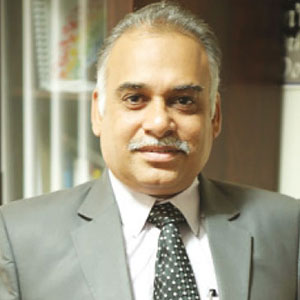How Universal Medical Codes Promise More Career Opportunities For Medical Coders

Healthcare is a sector, which touches every individual. In developed countries, it makes up for over 10 percent of the GDP, and in the case of the US, it makes up over 18 percent of the GDP.
With an aim to cut costs, healthcare providers, pharma companies and other players in the sector have taken to outsourcing, much of it to developing countries like India where the quality of talent is higher and cost advantageous. Over the last two decades, there has been a move to focus more on core work and outsource non-core work.
As per a 2015 research report by ASSOCHAM, India has been one of the leading destinations for outsourcing in the healthcare space. The global medical process outsourcing market is estimated to be worth more than $100 billion where pharmaceutical outsourcing has been seen as the key segment. Primary and secondary sources estimate the size of the medical process outsourcing industry in India to be $3.3–4.2 billion industry.
The services offered by healthcare outsourcing providers include Revenue Cycle Management (medical billing, coding, collections), medical transcription, medical imaging related reporting, patient enrolments, electronic medical records and many more. The report also mentions that a few services such as medical transcription are becoming less popular, whereas, many others involving patient care, medical imaging, patient enrolment and so on are growing in popularity.
Understanding medical coding
Medical coding is one of the elements of the healthcare outsourcing business where the process involves conversion of healthcare, procedures, medical services, diagnoses and equipment into universally accepted medical codes. These codes are an integration of both alphabets and numbers.
Medical codes should highlight the whole story of the patient's engagement with the physician and should be as specific as possible with regards to capturing the reimbursement for the services rendered.
Medical coding helps simplify many internal healthcare related processes. Claims are submitted to third-party payers; statisticians, researchers, public health officials, and internal auditors use these codes to determine what services were provided to patients, and why.
Current scenario of medical coding in India
There has been a consistent rise in the number of medical coders in India. We believe that Indian coders are better skilled, more professional and well-versed in international coding practices. On a regular basis, these coders develop and refine internal compliances of contract ICD and CPT coding resources to stay abreast of the requirements of the industry.
Factors making medical coding popular
1. Universal codes: Medical codes are universal and therefore the training received and skills developed can be used to gain employment in any part of the world.
2. Healthcare insurance sector gaining popularity: Healthcare insurance is gaining more acceptance than before. In order to have a proper structure for healthcare insurance ecosystem, companies are moving forward aligning their operations with the industry right from medical coding to insurance claim.
3. An alternative employment: Life science and para-medical graduates consider this as an alternative career to their chosen field as medical coding has lucrative career and compensation options, on par with other white collar jobs across geography.
4. Necessity of EHRs: Across much of the world, Electronic Health Records (EHRs) are considered an essential service. With a need to have seamless process of entire healthcare billing management, the demand for coders will keep rising.
5. Increased business with IT advancement: Connectivity between countries has become stronger, with improvement in IT. US-based organizations are increasingly outsourcing their coding services to other countries, especially India.
6. Graduates from any field can do coding: Non - life science graduates are also picking up these niche skills through rigorous training. While life sciences graduates find it easier to learn, medical coding can also be taken up by graduates from other backgrounds.
7. Medical billing process becomes easy: With all codes in place, the medical billing coordination among patients, healthcare providers and insurance companies are streamlined.
Future of medical coding
Medical coding is recognised as one of the exciting career opportunities across the globe. The job involves a unique set of duties. Maintaining an up-to-date electronic record of patients with the goal of paying the suppliers seamlessly by the insurance agencies is turning out to be a crucial part of the healthcare industry. With the latest transition of medical coding process from ICD 9 to ICD 10, the industry is aggressively in search of well-trained medical coders with in-depth knowledge of the profession. India is said to have the second biggest pool of medical coders after the US. In spite of being the second-biggest pool, India displays extraordinary potential and a medical coder in the developing countries are likely to have a great career growth.
With healthcare KPO sector growing phenomenally, the need to have health information experts will grow even more. The increase in the average lifespan of the overall population will further call for proper medical billing and insurance claim procedures. At the same time, employment for medical coders will grow.

